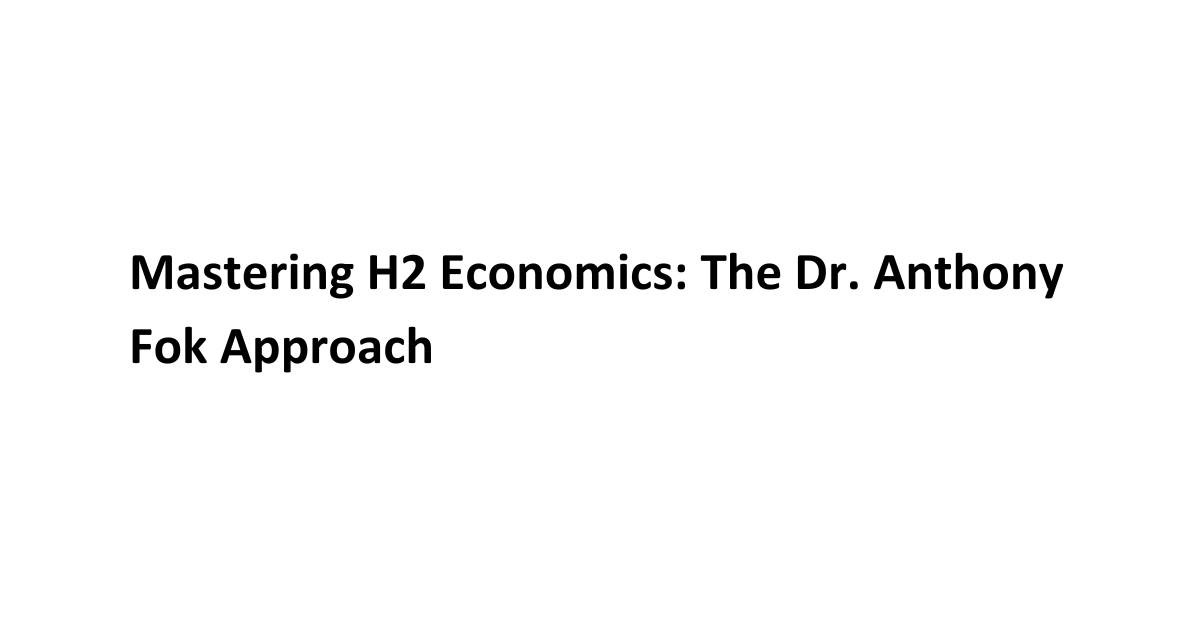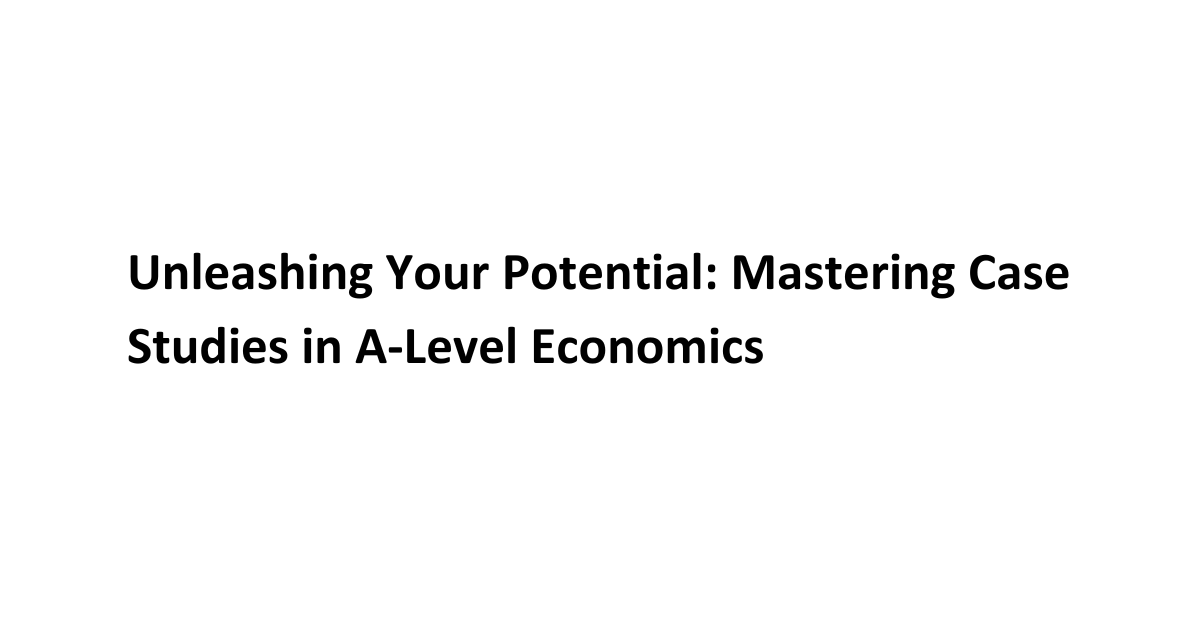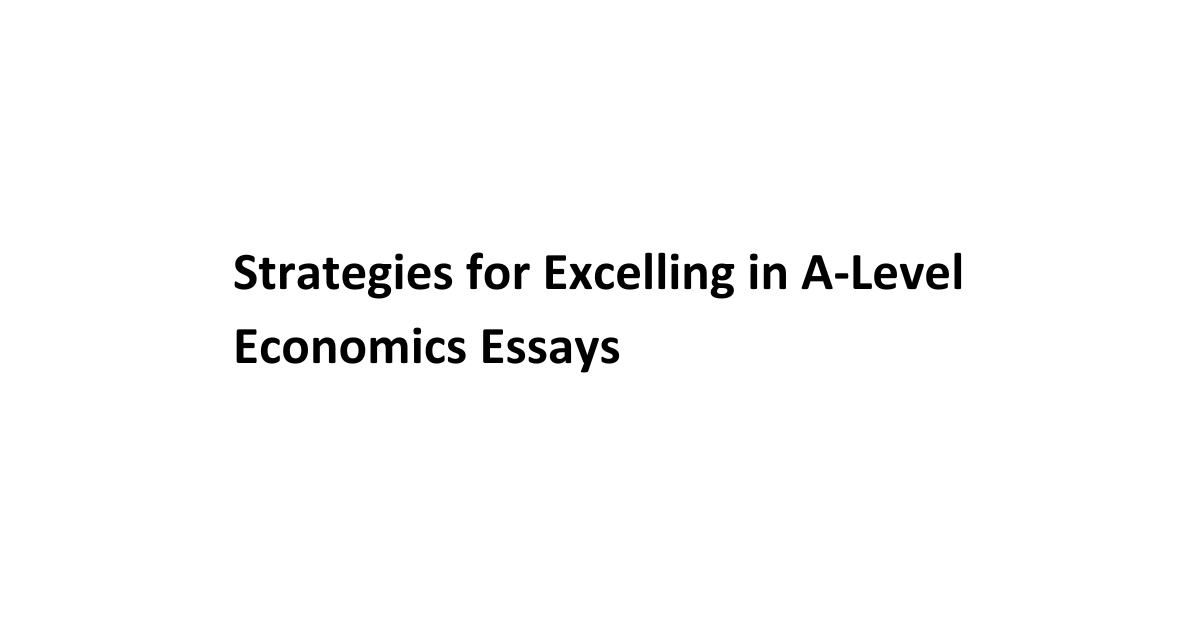24 Oct Excelling in Economics: Your Path to Success with Anthony Fok
Are you a junior college (JC) student grappling with the intricacies of economics? Do you often find yourself struggling to comprehend and apply economic concepts in your exams? Worry not; JC Economics Education Centre Pte Ltd is your guiding light. Our dedicated economics tuition classes for both JC H1 and H2 economics are meticulously designed to empower you to excel in this challenging subject.
The Challenge of Economics
Economics is a popular subject among JC students in Singapore, but it is also one that many students find particularly challenging. The subject demands a deep understanding of complex concepts and their practical application. That’s where our tuition classes come in. At JC Economics Education Centre, we are acutely aware of the unique challenges students face when studying economics. Our tuition classes are specifically tailored to help students achieve academic excellence in this subject, making it accessible and understandable.
Mastering the H2 Economics Syllabus
Our H2 economics syllabus is comprehensive and divided into two distinct areas of study: microeconomics and macroeconomics. These two areas are assessed through two case studies and three essays at the GCE A-Level examination, which marks the culmination of two years in junior college. Anthony Fok, our experienced economics tutor, understands the nuances of this demanding syllabus and has crafted our tuition classes to ensure students develop a deep understanding of the subject matter.
Immediate Clarification of Doubts
One of the primary advantages of our economics tuition classes is the immediate clarification of doubts. It’s common for students to have questions that may go unanswered during regular school classes. By enrolling in our tuition classes, students have the opportunity to clarify their doubts immediately with our qualified tutors. This ensures they have a crystal-clear understanding of economic concepts, which, in turn, significantly boosts their preparedness for exams.
Quality Study Materials
In addition to immediate doubt resolution, we provide our students with high-quality study materials. Our personalised notes are thoughtfully designed to facilitate better comprehension of key economic concepts. These materials serve as invaluable resources, empowering students to prepare for exams with confidence and achieve academic excellence in economics.
Affordable Tuition Fees
We understand that JC economics is demanding, and the financial burden of tuition can be overwhelming. That’s why we offer affordable and reasonable tuition fees. Our monthly economics tuition classes for J1 and J2 students in Singapore are priced at just $440 for 4 lessons. These fees not only cover the lessons but also include free consultation for assignment reviews and pre-exam consultations. Furthermore, our tuition programmes come with 24/7 online support through WhatsApp, ensuring that students have the assistance they need when they need it.
The Approach to Excellence
At JC Economics Education Centre, we firmly believe that the path to excelling in economics is founded on a two-pronged approach: first, understanding the key concepts of the syllabus, and second, mastering the application of this content when answering questions. With the guidance of our qualified tutors for H1 and H2 economics, we place significant emphasis on teaching students “why” these concepts are important, “when” in the exam they should use the content, and “how” they should use it through a methodical, step-by-step approach to writing.
Your Journey to Success
In conclusion, if you’re facing challenges with economics, our economics tuition classes can be your beacon of hope. Our experienced economics tutor, Anthony Fok, is dedicated to helping students achieve academic excellence in this challenging subject. With our personalised notes, effective teaching methods, and affordable tuition fees, we are confident that we can help you unlock your full potential. So, seize the opportunity and sign up for our tuition classes today, embarking on your journey toward success in economics.







